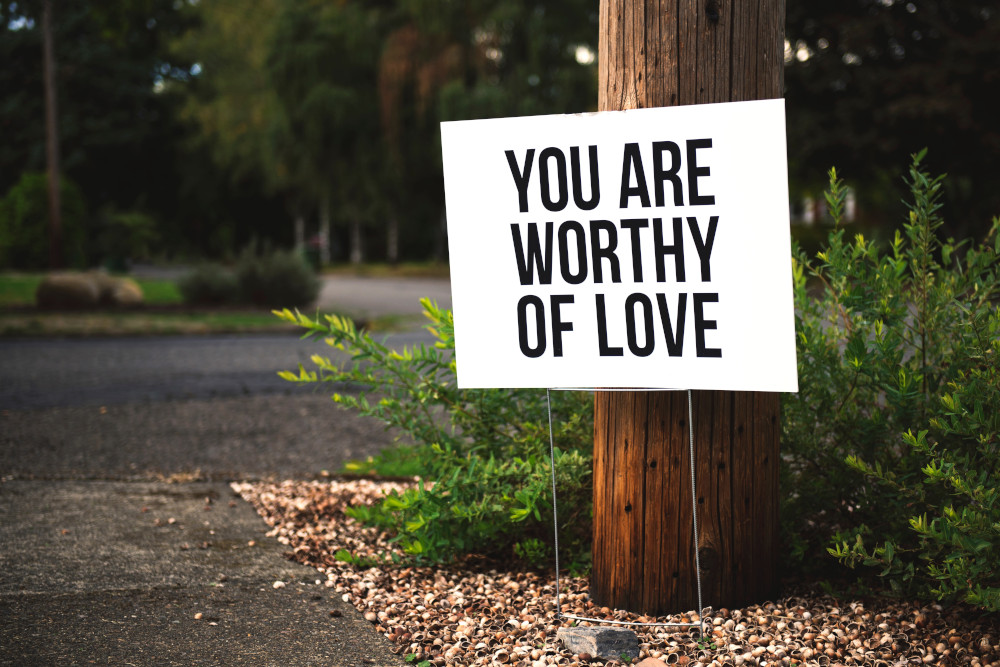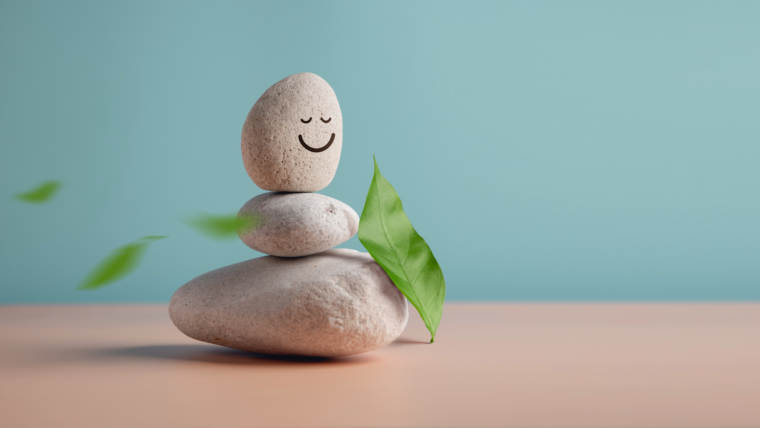In a world where everybody has a perfect social media presence, it can be hard to figure out how to accept yourself.
The question of how to do it seems simple enough. But the answers can be as diverse as the things you’re unhappy with about yourself.
However, whatever issues you’re working through, it starts with not being so mean to yourself. ‘Loving yourself’ might feel like a stretch from where you are right now.
Moving towards self-acceptance is a far more realistic goal. It’s a lot easier to appreciate others than it is to turn that on yourself – but with a bit of perseverance, it can be done.
When you decide that you want the next 30 days to be a transformative time in your life, here are some helpful tips to become more appreciative of you. Try implementing these tips into your daily life for the next 30 days, and watch your self-kindness grow.
Tip 1 – Be Mindful Of Negative Self Talk
If you catch yourself thinking or saying negative things about yourself, stop in your tracks! I mean let’s face it, you know it isn’t going to change anything for the better, right?
Say the word ‘next’ or ‘move on’ to remind yourself that this particular thought pattern is not helpful.
Tip 2 – Forgive Yourself And Others
Forgiveness is a powerful tool in self-acceptance. No one is perfect. Everyone has flaws and makes mistakes. Forgive yourself and others for defects and faults. Once you do, you can let go of the pain and move on.
You’ll appreciate the freedom that comes with not having to spend your precious energy on bitterness or revenge fantasies, and becoming a more compassionate, connected human being..
Tip 3 – Volunteer Your Time
It can be relatively easy to get wrapped up in our own problems and challenges; but as the saying goes, “there is always someone out there who has it worse than you.”
To make it more meaningful, volunteering your time at a cause you support is sensible. Some ideas worth considering would be local wildlife rescue centres, food pantries, hospitals or clinics, or other worthwhile causes.
Volunteering not only helps others, but it also leaves you with a better sense of self-worth at the end of the day.
Tip 4 – Embrace Saying No
There isn’t a way to be everything to everyone. While this doesn’t mean you have to say “no” to everything others ask you to do, if there is something you genuinely can’t, won’t, or don’t want to do, seize your inner power and decline.
You’ll appreciate having this time to focus on yourself or completing things you need to get done.
Tip 5 – Amp Up The Positivity In Your Life
These days, it can be hard to escape the barrage of bad news surrounding us in our daily lives. Instead of consuming negativity that mires you in fear, uncertainty, and doubt, find positivity.
If you’re feeling unworthy, consider doing positive affirmations or reading uplifting quotes to snap you out of your mood.
Tip 6 – Move Your Body
Exercise is one of the optimal activities you can do for your mind, body, and spirit. Essential exercise doesn’t have to be too complicated or challenging. When you partake in exercise, your body releases endorphins – the body’s “feel good” hormones, which uplift your mood.
Of course, you should first and always consult with your primary care physician before starting a diet or exercise program.
If you’re getting active, walking is the most natural exercise option. When walking outdoors, the fresh air is good for your soul, respiratory system, and lungs. As walking gets more comfortable, you can always speed things up by jogging, running, or doing HIIT training, alternating between low and high-intensity exercises for optimal results.
If you’re limited to exercising indoors, you might consider looking into YouTube workout channels or fitness and exercise streaming channels online. Today, there is no shortage of fitness programs from which to choose.
Whether you want to learn Tai Chi, focus on strength building, dance, or have an expensive piece of fitness equipment that connects with classes and instructors, your body will appreciate the movement.
Tip 7 – Plan A Social Media Detox
Overexposure to social media platforms can have a detrimental effect on your mentality. While it’s a great tool to keep in touch with people, particularly during a pandemic, it’s OK to take a break.
The chances are good that all your friends and family will be there when you return! This advice is beneficial if you find yourself feeling more unhappy after spending time there.
Along with the ability to keep up with people, it can be challenging not to compare yourself to others or become jealous of people for whatever reason.
It’s important to remember that the images others present often run through filters and editing software to offer the best versions of themselves. It’s unfair to judge how well others live based on the information they provide and compare yourself to them.
Your mind will appreciate the break from constantly comparing yourself to others.
Tip 8 – Keep A ‘Good Stuff’ Journal
Writing down your thoughts and ideas can be quite therapeutic; but when you actively notice and write down good things that happen to you during the day, this goes one step further.
It actually trains your mind to become more positive. This makes you more resilient, more contented and it also increases your confidence.
As you move forward, you’ll appreciate having written your thoughts and feelings, so you can reflect on how far you’ve come as it relates to self-appreciation.
Tip 9 – Try Something New
As we age, it’s easier to become mired in old habits, patterns, and the mundane. It’s not too hard to see how this can be calamitous if we never try anything new or reach outside of our comfort zone.
Trying something new opens up new doors for opportunities and challenges that are fun, exciting, and stimulating. When you’re feeling melancholy or unmotivated, new activities give you something to get excited about.
Alternatively, you might consider changing your diet, particularly if you have extra weight you’d like to lose. Replacing takeaway and junk foods with more nutritious options helps provide the clean energy your body and mind require to function at their highest levels.
You’ll appreciate your decision to push yourself past your comfort zone and have a new experience that’s engaging and fun.
Tip 10 – Organize Your Home
It’s no secret that having an organized home is better for your mental health. If you’ve noticed that things are starting to look a bit out of control, unkempt, or disorganized, taking steps to organize things helps to bring peace of mind, serenity, and calmness. Remember, you can take more than a day to complete your chores.
Take steps to start somewhere and focus on completing one task before moving on to another. If you have significant amounts of items you need to declutter, allow enough time to sort them.
To make the process of decluttering easier, arrange three piles – one pile for stuff you want to throw away, another pile for things you wish to donate, and a third for items you wish to keep.
You’ll appreciate yourself for taking decisive action to organize and declutter your living or workspace, which often leads to increased productivity and feeling better overall.
Tip 11 – Work Through Past Traumas
You would be amazed how past traumas can negatively impact our lives years and decades after the event happened. There are multiple types of trauma, including emotional trauma, physical trauma, or a combination of both.
Examples include domestic and childhood abuse cases, being a crime victim or having experienced unfavorable situations that caused you harm. When trauma happens, it isn’t uncommon for these damages to play themselves out in a variety of ways, including:
- Mood swings;
- Depression;
- Anger;
- Feeling anxious;
- Eating disorders;
- Difficulty sleeping;
- Self-medicating;
- Substance abuse;
- Difficulty feeling good;
- Introversion;
- Problems in relationships;
Working with a psychiatrist, psychologist, or hypnotherapist often helps navigate these issues so that you can cope with and manage symptoms more effectively.
By addressing these traumas, you’re taking steps to overcome whatever obstacles and difficulties that result from them. As you might imagine, this helps you come to terms with yourself, so you feel stronger, more empowered, and appreciative of how far you’ve come.
Tip 12 – Stop Procrastinating
Procrastination is the thief of time. And while you might not think this habit hurts your sense of wellbeing, that nagging feeling in the back of your head is never a good thing.
If there are important matters you need to attend to, the sooner you handle the details, the sooner you’re able to put it behind you.
When mail arrives, sort it. If your laundry is dirty, wash it. Get your tasks done, so you don’t have to feel guilty about not doing them.
As you might imagine, you’re sure to feel more appreciative of yourself when you know that you’ve taken care of pressing concerns.
Follow These Tips For 30 Days
The road to self-appreciation starts with you. For the next 30 days, attempt to implement as many of the twelve tips I’ve provided to start building a healthy self-esteem.
It starts with acknowledging that you are worth the effort, and as you begin to see your attitude change, other results are bound to come from the adjustments you’ve made.
I hope this proves helpful in learning how to accept yourself. And remember: using tools such as hypnotism to support changing the way you think and view yourself is a healthy approach to overcoming whatever doubts or shortcomings prevent you from fully appreciating yourself.





